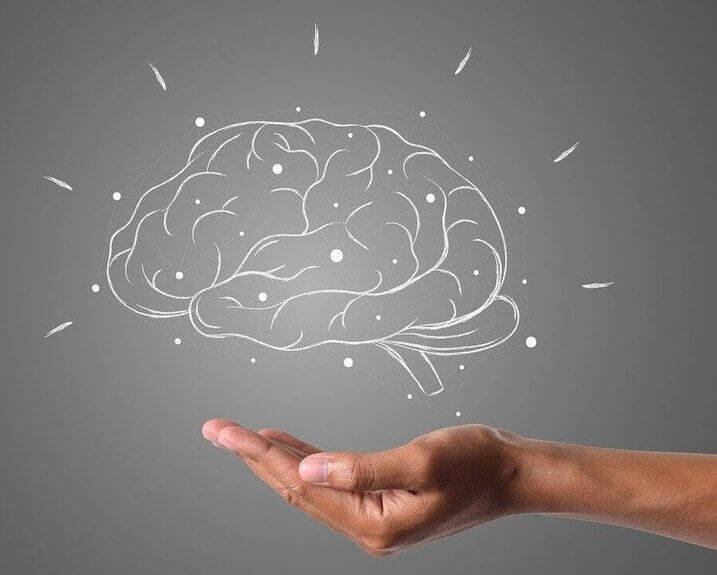Are you ready to embrace your emotions and transform your life’s journey? Emotions, those complex states that influence our behaviors, are at the core of human experience.
Your beliefs, thoughts, and emotions shape your perception of reality. This means you hold the power to shape your responses to life’s ups and downs and create a more positive experience.
Yet, many of us struggle to understand and embrace our emotional world.
Which is why emotional self-awareness is crucial. Besides knowing when you are feeling happy or sad, it’s understanding why you react the way you do. It’s knowing how your emotional states can impact your decision-making process and well-being.
By understanding them, you can shift a negative experience into an opportunity for personal growth. And, every day presents an opportunity for self-mastery.
It may be a challenging interaction at work or the frustrations of daily traffic. If you respond with patience and compassion, the outcome will be different than if you react with anger.
Choosing a positive emotion will uplift yourself and others. It can help you lead a happier life.
In this article, we’ll get into the fundamentals of emotions. We’ll explore what they are, why they matter, and how you can use them to your advantage to become a more empowered you.
So, let’s dive in!
What Causes Your Emotions?
Alright, let’s dig into the heart of the matter – what causes those emotional storms within you?
Emotions are your responses to external and internal stimuli. According to Wikipedia, emotions are:
“Psychological states brought on by neurophysiological changes, variously associated with thoughts, feelings, behavioral responses, and a degree of pleasure or displeasure.”
A thought, an event, or a memory can trigger them. Thus, two people can have different emotional responses to the same situation.
Your past experiences, beliefs, and societal expectations also influence your mood. For example, two people with completely different reactions to experiencing anger. Why? A person raised in a household filled with aggressive anger may show a more intense response. Whereas the other person, raised in a calm and collected environment, might have a more composed reaction.
It’s important to understand that your emotions are valid, and there is no right or wrong way to feel them. Plus, you can control them. It’s only a matter of learning how to.
By practicing self-awareness, you can gain valuable insight into your inner world. And understanding your emotions is key to your personal growth and fulfillment.
Related article: The Power of Self-Awareness in Managing Your Emotions: A Step-by-Step Guide
The Role and Significance of Emotions
Emotions serve a purpose, a crucial one at that. They’re like your internal guidance system, nudging you to pay attention to certain situations.
The following is an excerpt from “The Astonishing Power Of Emotions” by Abraham-Hicks:
Beyond the five physical senses that you‘re actively aware of, there‘s another less realized sense –the sense of emotion.
Just as with your other five senses, that sixth sense, which was active within you the day you were born, requires no training in order for you to understand that it exists.
Just as no-one taught you to see, to hear, smell, taste or touch, you do not need training in order to recognize that you‘re feeling emotions.
In fact, your awareness of your emotions is evidenced by the conversations you have, as you define your life experience and your awareness of it.
Emotions play a large role at the life experience of you and everyone you know. But few have any conscious awareness of the astonishing power and value of their emotions.
Your emotions are telling you whether your current active thought and subsequent vibrational offering matches the vibration of your evolved Source Self or not.
When the signals match, or come close to matching, you feel wonderful. When the signals do not match, you do not feel so good.
Your emotions are your allies. They help you navigate the complex labyrinth of human experience. They’re messages from within, urging you to understand yourself better.
They also ease your decision-making. When faced with a tough choice, your emotions can guide you toward the most suitable option.
Furthermore, feelings are the essence of your social interactions. They allow you to empathize with others and build strong relationships.
Thus, acknowledging and expressing your emotions is intrinsic to personal growth and development.
Related article: The Function of Emotions: What You Need to Know

Your Core Emotional Needs
Now, let’s talk about your core emotional needs. These are fundamental requirements for your psychological and emotional well-being. When satisfied, they contribute to your sense of fulfillment and happiness.
According to Abraham Maslow’s “Hierarchy of Needs”, you can group these into eight categories:
- Physiological Needs. Based on Maslow’s theory, we have a natural inclination to meet our basic physiological needs first. These are fundamental to survival and include needs like food, water, shelter, and heat. Before seeking higher levels of intrinsic satisfaction, we must meet these first.
- Safety Needs. This category pertains to the need for security and protection. It encompasses areas like health and emotional, financial and personal security.
- Love and Social Needs. This level includes the desire for interpersonal relationships. Maslow believed that we have an inherent need to belong and be accepted within social groups. These include friendships, romance and family, and receiving and giving love.
- Esteem Needs. These needs involve the desire for respect, self-esteem, status, recognition, and freedom. It’s about feeling good about yourself and getting recognition from others.
- Cognitive Needs. This category pertains to the need for knowledge, understanding, and meaning in your life. It involves intellectual stimulation and the pursuit of truth. Your cognitive needs seek meaning, information, comprehension, and curiosity. It is this drive that fuels your desire for learning and acquiring knowledge.
- Aesthetic Needs. This level refers to the appreciation of beauty and balance in your life. It also involves your ability to appreciate nature and the world around you.
- Self-Actualization Needs. This is the need for personal growth and fulfillment. According to Maslow, this is about striving to achieve your full potential. It’s about becoming the best version of yourself. These needs include goal achievement and developing new skills.
- Transcendence needs. Maslow added this level later on. It refers to the need for spiritual growth and connection with something greater than yourself.
By identifying and satisfying your core emotional needs, you can better understand yourself. It also helps you build stronger relationships and work towards your self-development. So take some time to reflect on your emotional needs and how you can fulfill them in a healthy way.
Related article: Discover Your Core Emotional Needs: 5 Steps to a Life of Balance
How can you easily identify what you are feeling?
Identifying your emotions requires self-reflection and mindfulness. So, start by relaxing your mind and focusing on your internal experiences.
A good way to gain clarity is by using an ’emotions chart’ as a guide to identify and label your feelings. Naming them helps you differentiate and make sense of them, even when they’re mixed together.
Your emotional states tend to show up in a physical way too, so pay attention to your body. A flutter in your stomach, a racing heart, or a lump in your throat – these are all clues.
Lastly, ask yourself: “Am I feeling good or bad?” This uncomplicated query brings you into the present moment. It also highlights that you are not your emotions; you are the one experiencing them. Understanding this separation is your ticket to emotional mastery.
Let’s say you’re aware that you feel good. But the specific emotion—whether it’s happiness or peace—eludes you. Here’s a handy trick: rewind to a moment in the past when you were unequivocally sure about how you felt. It could be the birth of your child, a moment of triumph, or any memory where your feelings were crystal clear. Compare that memory to your current state.
Don’t rush through this process—take all the time you need. With practice, you’ll gain greater emotional intelligence and self-awareness.

Master Your Emotions and Elevate Your Vibrational Energy
By taking control of your emotional state, you become a beacon of high vibes, joy, gratitude, and love. When your emotional health is at its peak, it creates a ripple effect of positivity. It impacts your well-being and influences the energy you bring to your interactions.
This positivity improves your relationships, productivity, and perspective on life. You become a catalyst for positive change, both in your life and in the lives of those around you.
Related article: Empower Yourself: How to Master Your Emotions for a Fulfilling Life
Strategies to Master Your Emotions Fast
Here are six great strategies to get started and handle your emotions pronto:
- Take a deep breath. Deep breathing can help calm your mind and body, allowing you to gain quick control over your emotions. When emotions surge, take a few deep breaths. Inhale positivity, exhale negativity.
- Understand the root cause. Take a moment to identify the underlying reason for your emotions. This means being self-aware and looking within yourself to find what is making you upset.
- Open your mind to a different perspective. Try to understand the situation from the other person’s point of view. This can help you shift your emotions and be more compassionate and patient.
- Ask clarifying questions. Try not to jump to conclusions about why people behave the way they do. Instead, ask them to clarify what they mean or what they are trying to say. This can help you avoid getting angry over a misunderstanding, for example.
- Identify triggers. Pay attention to what situations or people evoke strong emotional responses from you. Knowing your triggers can help you prepare for them and manage your emotions better.
- Prepare in advance. Once you know what triggers your negative emotions, make a plan. How would you like to respond next time? How do you want to feel? The more you practice this, the better you’ll get at it.
- Connect with gratitude. Think about, or jot down, several things you’re grateful for. Shifting your focus to gratitude can transform your thinking patterns. Do your best to be in a state of appreciation throughout your day. Plus, gratitude is one of the best emotions you can feel.
These easy-to-do tips will have you back in control of your emotions in no time.

Vibration of Emotions
Everything in the universe, including our emotions, is energy and vibrates at specific frequencies. A great article on this subject is Everything Is Energy—Your Key to Shaping Reality by Mindvalley.
Every emotion we experience, from joy to despair, emits a unique energetic signature. Positive emotions like love, joy, and gratitude vibrate at higher frequencies. Negative ones like anger, fear, and sadness vibrate at lower frequencies.
By mastering your emotions, you can align with positive vibrational states. So, understanding this vibrational nature of emotions is key for your emotional health.
Let’s explore two primary emotions from which most others branch out: love and fear.
Emotions rooted in love
Love is the ultimate high-vibe emotion. It’s a powerful emotion that can uplift those around you and have a positive impact on the world. It radiates positivity and attracts well-being into your life.
This love goes beyond romantic love. It encompasses self-love, love for others and for the planet.
Love elevates your vibration.- Other high vibrational emotions are gratitude, joy, contentment, peace, acceptance, forgiveness, compassion.
Emotions rooted in fear
On the flip side, fear-based emotions emit a different signal. Fear is like a fog that clouds your energy and your mind.
These emotions are not “bad,” but if left unchecked, they may cause mental and physical issues. They may also attract negative experiences into your life.
So, understanding their impact and shifting to empowering emotions can help you enjoy a more harmonious life.
- Other low vibrational emotions are anger, resentment, envy, jealousy, victimhood, powerlessness.
The following are three easy steps to elevate your vibration.
- Tune into love: Start by recognizing and embracing emotions rooted in love. Acts of kindness, gratitude, and love elevate your vibrational energy.
- Release fear’s grip: Identify emotions rooted in fear, such as anxiety or resentment. Acknowledge them without judgment, and then release their hold on you. Replace fear-based thoughts with positive affirmations or thoughts of gratitude. This step allows you to shed the heavy vibrations and make room for lighter, uplifting energy.
- Choose positive vibrations: Opt for positive emotions. Engage in activities that bring you joy, laughter, and fulfillment. Surround yourself with people who radiate positivity.
There are also several techniques you can use to raise your vibration, change your beliefs, and release stress:
- Meditation
- Emotional Freedom Technique (EFT or Tapping)
- Visualization
- Daily affirmations
- Reiki
- Silva UltraMind courses
All these can help you raise your vibration and create an uplifting resonance within.
Related article: Good Vibes 101: A Beginner’s Guide to the Vibration of Thoughts and Emotions

The Relationship Between Emotions and Manifestations
The vibration you emit on a regular basis plays a crucial role in manifesting the life you desire. The higher your frequency, the more aligned you are with your desires and dreams.
Picture your emotions as the magnetic force that attracts energies of similar vibration.
This is where the Law of Attraction steps in. According to this universal principle, like attracts like.
When you’re in a positive mindset, you attract more opportunities, resources, and blessings.
Thoughts are the architects of this manifestation process. They set the blueprint for what you want to attract. Positive thoughts coupled with elevated emotions create a strong combination.
But here’s the key: actions are the bridge between your inner world and the external world of manifestation.
The Law of Attraction responds not only to what you think and feel, but also to what you do. Your actions are the physical manifestation of your inner state.
As an example, let’s say you’re aiming to manifest more abundance into your life. Visualize your desired outcome and feel gratitude as if it’s already here.
Cultivate thoughts and emotions of prosperity.
Then, take action! Move towards your financial empowerment. Invest wisely, explore new opportunities, or enhance your skills.
Aligning your actions with high-vibe emotions and thoughts propels your desires into reality. So, believe it, feel it, and then take inspired action. That’s the secret sauce to manifesting your dreams.
The Significance of Owning Your Emotions
When you take responsibility for your emotions, you get in the driver’s seat of your life. It’s a game-changer. You become an active participant in shaping your emotional well-being.
You can start by understanding a fundamental truth:
No external force has the power to “make you feel” a certain way.
It is an inside job. You’re not at the mercy of circumstances or the whims of others. Instead, you wield the power to choose your emotional responses.
It’s a mindset shift that challenges the habit of blaming external factors or playing the victim.
By accepting responsibility, you open the door to emotional freedom. You gain the transformative ability to uplift yourself whenever you desire. No longer are you hostage to circumstances or others’ actions; you recognize that your emotions are your creation.
While external events and people may trigger you, it’s up to you to choose how to respond.
Empowerment comes from knowing that you can turn negative emotions into positive ones, and having the will-power to do it. This doesn’t mean suppressing or denying negative emotions. It means recognizing and processing them in healthy ways, so they don’t consume you.
Granted, this isn’t a walk in the park. It’s an ongoing journey of self-awareness and reflection.
Thus, it’s important to stay present and aware. By learning to observe your emotions, you create a space between them and your response. This gives you time to choose how to react.
So, taking responsibility for your emotions is the key to controlling them. This allows you to become the master of our emotional states and easily shift into more positive vibrations. In doing so, you pave the way for greater joy, fulfillment, and inner peace.

Emotional Well-Being
Emotional well-being is more than the absence of stress. It’s an ongoing process of self-discovery, learning, and growth.
It involves being aware of your emotions to understand, accept, and manage them in a healthy way. When your emotional well-being is in check, you’re more balanced, grateful, and filled with a sense of fulfillment. You’re resilient and better equipped to handle fear and cultivate a positive outlook on life. You develop the tools to cope with difficult situations and follow your path.
So, taking care of your emotional health is non-negotiable if you want to lead a vibrant and happy life.
Self-Compassion and Self-Acceptance
A big part of your emotional well-being starts with self-compassion and self-acceptance.
Self-compassion means treating yourself with kindness and understanding, especially when mistakes happen. Instead of being self-critical, you learn from challenging experiences.
You, like everyone else, are a work in progress, and that’s more than okay.
Self-acceptance is finding peace with who you are. It’s understanding that what matters is not your perfection, but the authenticity you bring to the world.
By practicing self-compassion and acceptance, you create a safe and supportive inner space. This allows you to better process your emotions and find a sense of harmony within yourself.
Related article: Self-Compassion for Beginners: Simple Steps to Get Started
Related article: How to Build Self-Acceptance From the Ground Up and Embrace Who You Are
Gratitude
Another crucial element of emotional well-being is gratitude.
Gratitude involves appreciating all the good things in your life, no matter how small. It’s about shifting your focus from lack to abundance. This helps you cultivate a positive mindset and promotes emotional well-being.
When you practice gratitude, you attract more reasons to be grateful. It shifts your vibration to positive and attracts more blessings into your day.
So, take time each day to reflect on what you’re grateful for, and invite more joy to your life.
Related article: The Beginner’s Guide to Gratitude: How It Can Help You Live a Happier, More Fulfilling Life
Unraveling the Brain-Emotion Connection
Emotions have a physical and biological component.
An interesting article on the subject is “Your Brain and the Immune System” by Dr. Joe Dispenza. He talks about how overcoming limited emotional states triggers the upregulation of new genes in the immune system:
When people overcome limited emotional states that keep them connected to past experiences, break out of redundant habits and automatic programs, and change certain self-destructive hardwired attitudes and beliefs—the cells of their immune system are busy upregulating new genes.
This means that their thoughts and feelings are signaling cells within the body’s internal defense system to turn on healthy genes to make better proteins—otherwise known as healthy antibodies—as well as a host of other beneficial chemicals to balance and regulate the body.
This process in turn reduces inflammation, suppresses tumors, mobilizes enzymes, and so on.
When you experience an emotion, your body releases hormones that trigger physical responses. For example, increased heart rate and breathing. Thus, when you get stuck in a low vibration, it takes a toll on your well-being.
Furthermore, your brain plays the role of interpreter, processing information from your experiences. It decodes situations, labeling them positive, negative, or neutral. These interpretations then trigger emotions—joy, fear, excitement—forming your emotional landscape.
Understanding this connection empowers you to choose how to respond to situations by giving you an insight into why you feel the way you do.

In Conclusion
Emotions are a fundamental and essential part of being human. They serve as an important tool for communication, self-regulation, and decision-making.
So, it’s important to fulfill your core emotional needs. This will help you maintain a healthy inner state and take care of your mind, body, and spirit. It is not the result of a single action, but a series of practices that culminate in a healthier emotional life.
Remember, your emotional well-being is just as important as your physical health. Practicing self-acceptance, compassion and gratitude can be of great benefit to your well-being.
Moreover, with self-awareness you can start to master your emotions and channel them in a positive way. By doing so, you can elevate your vibrational energy and have a joyful experience.
I hope this blog post has shed some light on the complexities of emotions and why they play such a pivotal role in your life. What else about emotions would you like to know?
Don’t hesitate to leave a comment below with any questions or thoughts that you may have on this topic.
“Few realize that they can control the way they feel and positively affect the things that come into their life experience by deliberately directing their thoughts.”
– Abraham Hicks.


0 Comments